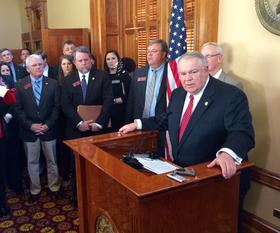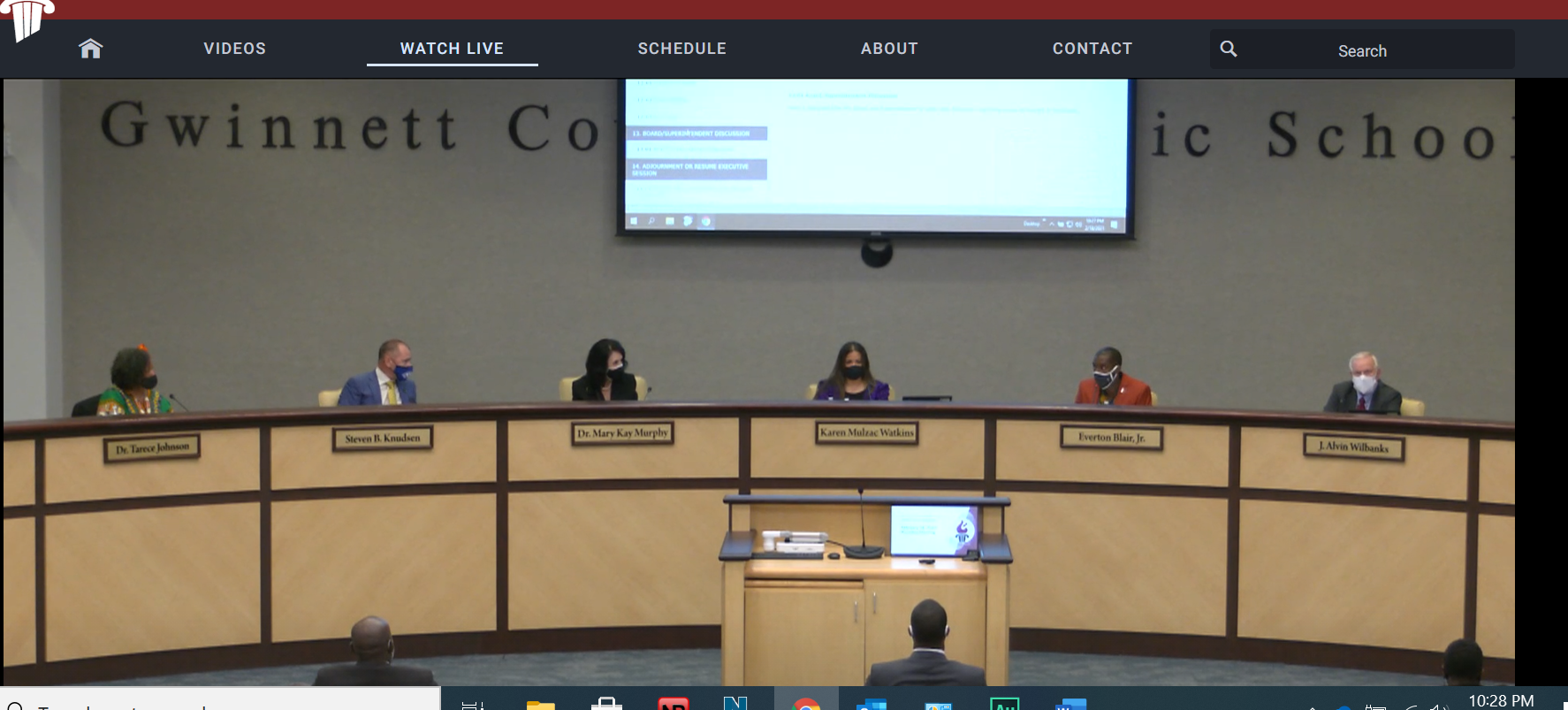State House Leaders Unveil Billion Dollar Transportation Plan

State House leaders Wednesday unveiled a major plan to boost funding for Georgia’s ailing network of roads and bridges. It would raise an extra billion dollars per year for state transportation projects.
Speaker David Ralston, R-Blue Ridge, said the plan addresses the state’s long-term needs and insisted on one key point.
“It does not result in an increase of state taxes on Georgians.” said Ralston.
Local taxes, however, could rise.
Right now, Georgia drivers pay on average about 27 cents per gallon in various state and local taxes.
Under the plan, the state excise tax on motor fuel would be raised from 7.5 cents per gallon to 29.2 cents per gallon. At the same time it would eliminate or phase out other components of what drivers currently pay at the pump, including local and state sales tax.
By converting to a straight excise tax, the state would collect more than a half billion dollars of revenue that currently goes to local governments. Those funds, by law, would be dedicated to fixing roads and bridges.
Local governments would be allowed to raise their own tax on motor fuel to make up for the lost revenue, but that would be up to the counties and cities to decide.
Clint Mueller of the Association County Commissioners of Georgia acknowledged the plan could put a greater financial burden on local governments. He also said it could mean less flexibility for county and city leaders.
“They’d only be able to use the new tax money for transportation. The pot of money they’d be giving up is for broader use so it doesn’t match up,” said Mueller.
He did say the plan is an important step in starting the conversation about transportation funding.
Last year, a legislative committee traveled across the state to gather input and come up with ways to raise transportation revenue. The committee identified at least a billion dollars in needs. Proposed options included a new statewide sales tax, fees for drivers of electric and hybrid cars, and raising the excise tax on motor fuel. State leaders hadn’t indicated which options they favored, but all agreed bold action was necessary.
House transportation chair Jay Roberts, R-Ocilla, has been crafting the plan for weeks and is expected to introduce a bill Thursday.
In addition to switching to a straight excise tax, Roberts said the plan would make available $100 million in bonds for local transit systems. He said it would be the first time the state has committed funds to local transit.
“I’ve personally had a change of heart,” said Roberts. “When we start looking at bringing in businesses and industry…we need to make it one of our priorities and I think this is a huge step forward in funding for the future when it comes to transit.”
The bond program would be offered to the state’s 128 local transit systems next year only. After that, the bill has no dedicated funding stream for transit.
The bill does include a new annual fee on electric vehicles: $200 dollars for most drivers, $300 for commercial vehicles. After the first year, those fees would be expected to generate more than $17 million annually. Roberts says lawmakers would be urged to use that money to support transit.
“We have language (in the bill) that says we would like for it to go there but we can’t constitutionally mandate it without a constitutional amendment, so therefore it’s suggestive language,” said Roberts.
Gov. Nathan Deal issued the following statement about the broader plan.
“The release of a transportation bill is a positive step forward in the process of delivering for Georgians the transportation improvements we desperately need. There’s still a long way to go as the plan winds through the General Assembly, but we now have a starting point and something to build on. We know what our challenges are – they are well documented – and we’re now working toward the solutions. I am committed this year to passing legislation that will provide for Georgia the transportation infrastructure it needs to keep our people and goods moving efficiently throughout the state for the next generation.”
What Georgia drivers currently pay at the pump:
- Federal – 18.4 cents per gallon excise gax.
- State – 7.5 cents per gallon excise tax. Goes to the Georgia Department of Transportation.
- State – Four percent sales tax. Three percent goes to GDOT, one percent goes to the state general fund.
- Local (city and/or county) – Up to three percent sales tax in most places – only the City of Atlanta and Clayton County impose four percent. Can be used for different budgetary needs.
Total, on average: 44.93 cents per gallon (including 26.53 cents per gallon in state and local taxes). Source: American Petroleum Institute
9(MDAxODM0MDY4MDEyMTY4NDA3MzI3YjkzMw004))








